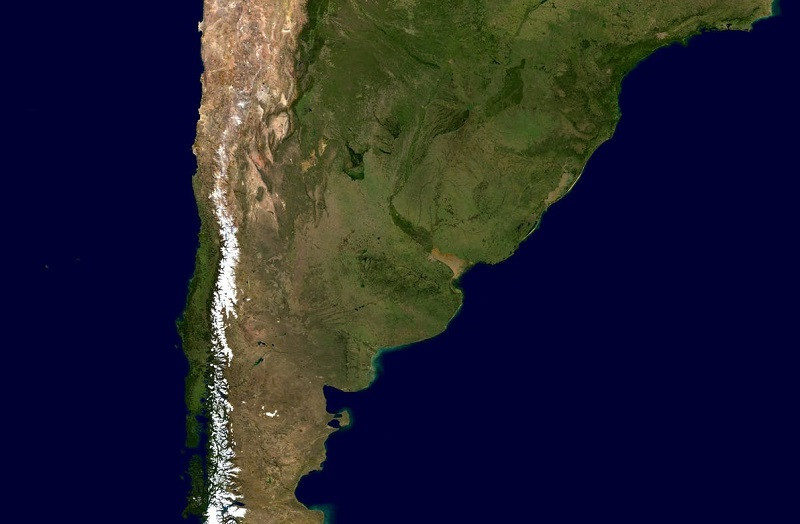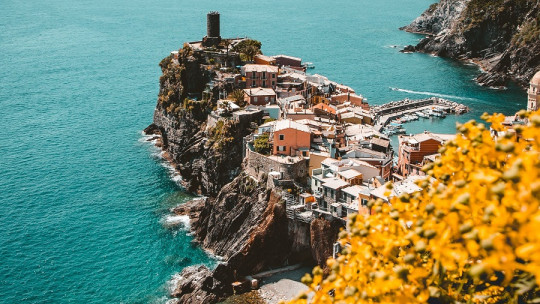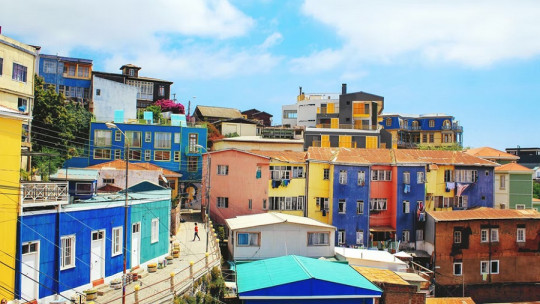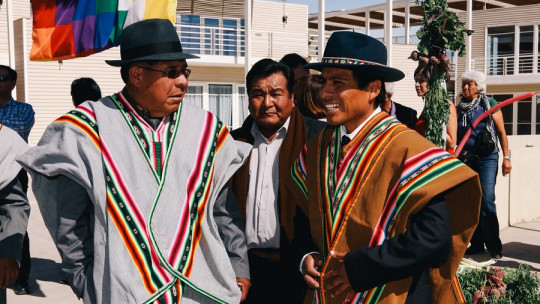
Argentina is one of the countries most defined by the mix of cultures, since among its inhabitants there are both people descended from the Amerindian peoples and, above all, of Spanish origin and, to a lesser extent, Italian and German.
For this reason, the characteristic surnames of the families that live in the Argentine nation reflect this cultural complexity associated above all with Europe, and specifically with the lineages from Spain.
Below you will find a list of the most common surnames in Argentina explaining their meaning and the family origin of these words.
What are the most common surnames in Argentina?
In the same way that happens in other Latin American countries, the majority of surnames in Argentina have Spanish origin, due to colonization.
In this way, it will not be surprising to see that the most common Argentine surnames are also common in Spanish-speaking countries in general, and that they often come from Latin, although we also find a lot of influence from Basque.
1. Gonzalez
The first place goes to González, a very common surname in Spanish-speaking countries. Its origin is located in the Iberian Peninsula, when the Visigoths lived there what is not so clear or is not known for sure is what specific region of Spain it comes from since different possibilities have been presented such as Castilla, Huesca or Asturias.
As with other surnames, the suffix “ez” indicates that it has patronymic origin, which means that it comes from the father’s name, in this case he would be the son of Gonzalo, which means “willing to fight.”
2. Rodriguez
The origin of the surname Rodríguez dates back to the Middle Ages, before the 11th century. In this case we once again find the suffix “ez” which means “son of” and therefore would be the son of Rodrigo, which is a name of Germanic origin that means “rich in glory” or “surname of kings”.
The suffix “ez” is believed to come from Basque and it was Queen Elizabeth II who preserved it as a tribute to the Kingdom of Navarra.
3. Gomez
The surname Gómez comes from the name of Germanic origin Gome, which was widely used by the Goths and means man.
4. Fernandez
Fernández, also of patronymic origin, means “son of Fernando”; In turn, this name is of German origin and translates as “peace.” This is a very common surname both in Spain and in America, therefore there are many family branches with this surname, not related to each other.
5. Lopez
The surname López is also a patronymic, formed by the suffix “ez” and the masculine name Lope, which derives from the Latin Lupus, which means “bloodthirsty,” a nickname given to the most reckless warriors.
6. Diaz
The surname Díaz refers to “son of Diego”, which comes from Hebrew and means “held by the heel.” He is believed to have originated in the kingdoms of Castile and León on the Iberian Peninsula.
7. Martinez
It is believed that the surname Martinez may come from the Spanish autonomous communities of Galicia and Asturias, since that is where there are the oldest records of this surname. As it is a patronymic surname, we know that it means son of Martin. The name Martin is of Romanesque-French origin and derives from the Latin Martinus, which means “warrior man.”
8. Perez
Pérez means “son of Peter” which comes from the Latin Petrus which means “stone”. It is believed that it was popular in the northern regions of the Iberian Peninsula, from which point it later spread to the rest of the communities.
9. Garcia
Although in this case the ending “ez” does not appear, it is also a patronymic surname that is believed to have a very ancient, pre-Roman origin and derive from a language similar to Basque. It is said that the meaning could be “bear”.
10. Sanchez
Sánchez which means “son of Sancho”, and it is not known with certainty whether it derives from Latin or Basque. It is a very widespread surname, which means that its origin is not known with certainty, although there were many kings, especially from the north of the Iberian Peninsula, who were called Sancho.

11. Rosemary
The origin of the surname Romero is located in the regions near the Mediterranean Sea It is believed that it was the name that citizens of the Byzantine Empire gave to pilgrims coming from Rome.
This surname is also related to the plant, which receives the same name “rosemary” and which has Latin origin and means “sea dew.”
12. Soda
The surname Sosa is believed to have both Portuguese and Castilian origin. Despite being found in different regions of Spain, where there are more individuals with this surname, it is in the Canary Islands.
13. Towers
The surname Torres is of toponymic origin, this term means that it refers to a place, in this case it comes from the Latin word turris which means tower. Its origin is very ancient, having records from the 11th century in the region of Castile, on the Iberian Peninsula.
14. Alvarez
Álvarez tells us “son of Álvaro”, which means protector. Although a single origin is not known, the oldest record is located in Asturias.
15. Ruiz
Ruiz is a patronymic surname that refers to the fact that he is a descendant of Rodrigo, a German name that means “rich in glory or money.” Its origin is located in the Iberian Peninsula during medieval times, although the region where it comes from is not specifically known, it is believed that it would be from northern Spain.
16. Ramirez
The surname Ramírez indicates the son of Ramiro, which is a Germanic name that means “illustrious warrior.” It is thought that it may have Gothic origin, although since it is so widespread it cannot be known precisely.
17. Flowers
The surname Flores is of Asturian origin, locating the origin of the Latin Florus, the Castilian name Flórez or the medieval proper name Froylez.
18. Benitez
The patronymic surname Benitez refers to “son of Benito” which in turn comes from the Latin meaning “blessed”, placing its origin in Asturias although it is difficult to know when it appeared.
19. Acosta
Acosta is a surname of Spanish and Portuguese origin that referred to the people who lived near the river.
20. Medina
Medina is a toponymic surname that comes from the Arabic “madina” which means “city”.
21. Herrera
The toponymic surname Herrera refers to blacksmithing, also being linked to the Latin word ferrum which means “iron.” The oldest records of this surname are located in Palencia, Spain.
22. Suarez
Suárez is a patronymic surname that is believed to be derived from the proper name Suero used during the Middle Ages or from the Basque word “suar”, which in Basque means fiery.
23. Aguirre
The surname Aguirre is of Basque origin, linked to the Basque nobility. Derived from the word “ageri” which means manifest, patent or discovered.
24. Gimenez
The surname Giménez, which indicates “son of Gimeno”, does not have a clear origin, it is believed that it may come from the name Ximeone which in turn derives from the name Simón, it is also thought that it may be linked to the root “seme” which means “son” in Basque” or having Baltic origin of the words “Eximenonis” and “Ixemenones”.
25. Gutierrez
Of Germanic origin, the surname Gutiérrez derives from the name “Gutierre” or “Gutier”. It is believed that the specific origin in Spain could be Cantabria
26. Pereyra
Pereyra is a toponymic surname of Galician origin that comes from the word Pereira, which means “pear tree.”
27. Red
Rojas is a toponymic surname that refers to the municipality of Rojas in the province of Burgos, in Castilla y León, Spain.
28. Molina
The surname Molina has its origins in the Early Middle Ages and refers to a profession, a person who works with the mill.
29. Castro
Castro is a toponymic surname that derives from the Latin word “castrum” which means “fortified camp.” Its origin is located mainly in the northwest area of the Iberian Peninsula, such as the regions of Galicia and Castilla y León.
30. Ortiz
Ortiz is a surname of Basque origin, being one of the oldest in Castile. Although the origin is not clear, it has been suggested that it may come from: the lineage of the Dukes of Normandy; from the Iberian Peninsula, specifically in the year 700 from Floriencio Ochoa Ortiz, a combatant in the Battle of Guadalete or from an Italian family.
31. Silva
The surname Silva of Portuguese and Spanish origin is a toponymic surname that comes from the Latin word “silva” which means jungle or forest.
32. Nunez
It is believed that the surname Núñez is of pre-Roman origin and means son of Nuño, a proper name that comes from the Latin word “Nonius”, for this reason we will say that it translates as “the ninth son”.
33. Moon
The surname Luna is of Aragonese origin and the oldest records of it date back to the 11th century.
34. Juarez
It is believed that the surname Juárez may be derived from the surname Suárez.
35. Cabrera
The surname Cabrera is related to the profession of goatherd and is believed to have its origins in ancient Gothic monarchs.
36. Rivers
The origin of the surname Ríos is also uncertain; it is believed that its use may have begun in some of the Spanish towns that bear the name Ríos, such as those located in Jaén, Orense or Badajoz, although there is also the possibility that it derives from the surname Río.
37. Morales
Morales is a toponymic surname that has its origin in Cantabria, Spain.
38. Godoy
Godoy is a surname of Galician origin that comes from the Germanic “goth” or “gund” which means famous
39. Moreno
The surname Morena comes from the nickname given to the Andalusian, Extremaduran and Levantine inhabitants who were darker skinned after the reconquest of the Iberian Peninsula by the Spanish.
40. Ferreyra
The surname Ferreyra is of Portuguese origin and derives from the surname Ferreira which comes from the Latin root “ferraruis” which means blacksmith.
41. Dominguez
The surname Domínguez tells us that he is the son of Domingo, which comes from the Latin “dominicus” which means “the lord’s man.” It is a very widespread surname in Spain, which makes it difficult to know its origin since there are different families in different regions that are not related to each other.
42. Reed
The surname Carrizo is of Basque origin and refers to a type of plant that grows in very humid places.
43. Peralta
Peralta is a surname originally from Navarre and of noble lineage
44. Castle
The surname Castillo is of noble origin that originated in the formerly called “Santander mountain”.
45. Ledesma
The surname Ledesma is of Castilian origin from the town of Ledesma located in the province of Salamanca.
46. Quiroga
The surname Quiroga has its origin in Galicia, an autonomous community in Spain.
47. Vega
The surname Vega is of Castilian origin, more specifically, it is believed to come from the region of Tierra de Campos located between the provinces of Valladolid, Palencia and León.
48. Vera
The surname de la Vera is of Roman origin and it is believed that it could be related to Numa Pompilius, the second king of Rome.
49. Muñoz
The surname Muñoz does not have a specific origin since different possibilities have been raised, it is believed that it could come from a Roman knight named Lucio Nurio; Another possibility is that it has its origin in the Royal House of Scotland and finally it may derive from Count Muñon Rodriguez who lived in the year 750.
50. Ojeda
The surname Ojeda is of toponymic origin linked to the town of Ojeda, located in the province of Burgos.
51. Ponce
The surname Ponce is of French origin, coming from the Porcelet lineage, descendant of the kings of Burgundy.
52. Villalba
Villalba is a toponymic surname from different populations in Spain. It derives from the Latin “vila alba” which translates as “white town”.
53. Cardozo
The surname Cardozo is of Asturian origin although it is believed that it could also come from the Santillana region in Santander.
54. Navarro
Navarro is a toponymic surname that tells us that it comes from Navarra, which in turn means forest or grove.
55. Colonel
The surname Coronel has Spanish origin although it has also been seen that one of its branches is of Jewish origin.
56. Vazquez
The surname Váquez is of Galician origin, specifically from Bayona, a municipality in the province of Pontevedra.
57. Ramos
The surname Ramos is a toponym, that is, it refers to the place to which the first person with this surname belonged, in this case it refers to several places in Spain. Coming from the Latin word “ramus” which refers to a group of flowers.
58. Vargas
The Castilian surname Vargas originates in the year 1085 during the reconquest of Madrid, where Juan de Vargas, who belonged to King Alfonso VI, had an important participation.
59. Caceres
The surname Cáceres is a place name that tells us that it belongs to the municipality of Cáceres in the province of Extremadura, Spain.
60. Arias
The surname Arias is of Galician origin, also having a patronymic origin that derives from the proper name Arias.








